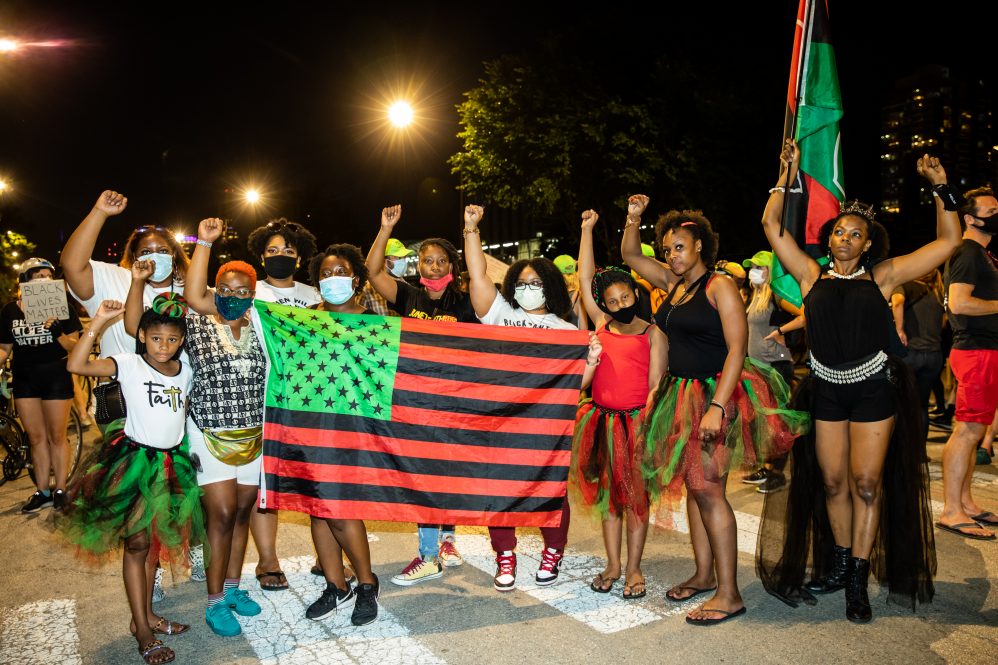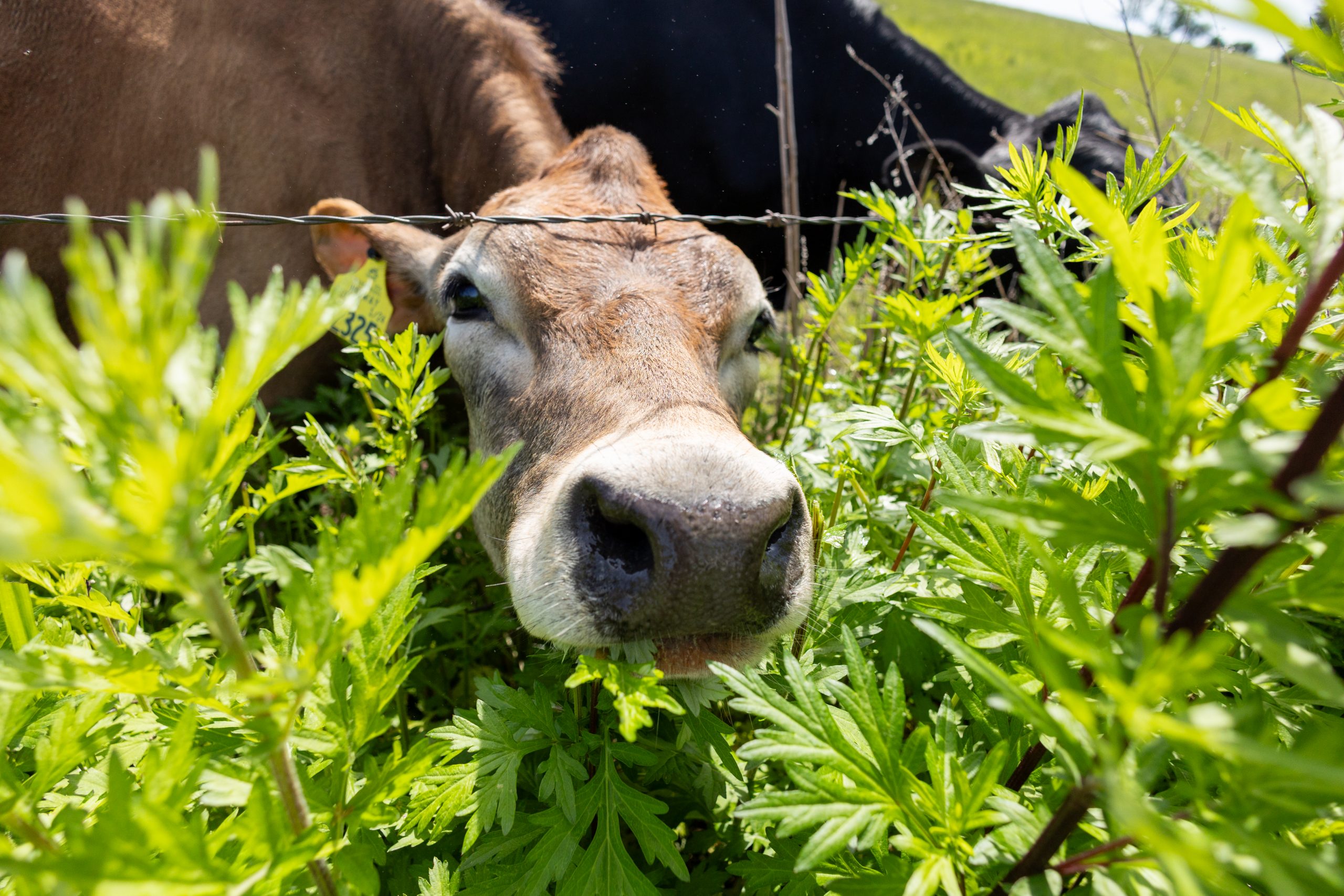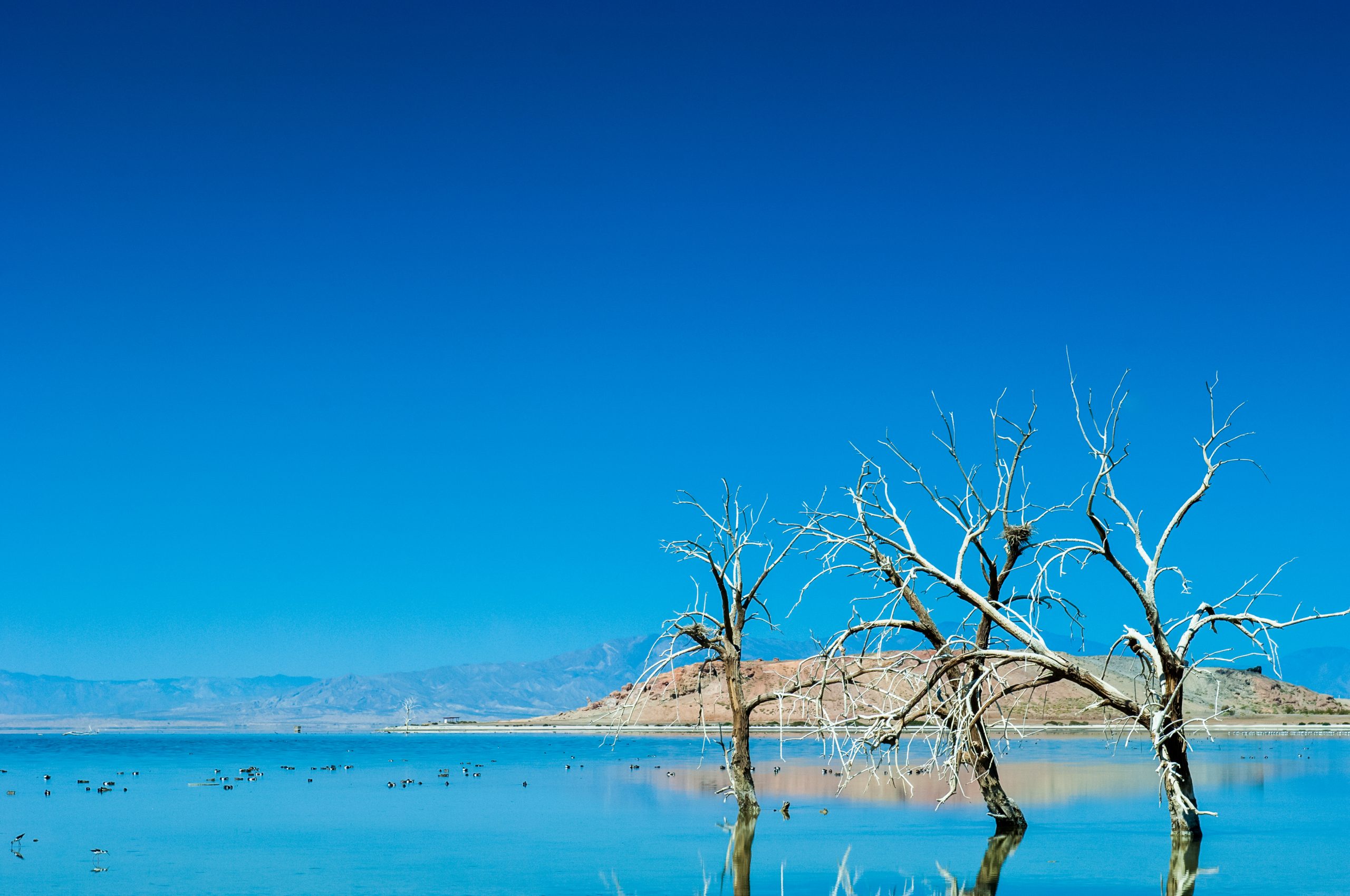Finding a way to celebrate Juneteenth isn’t hard to do – especially as Connecticut recognizes the holiday for the first time today and towns across the state hold parades, museum exhibitions, and poetry readings to honor the day.
But this year, community organizers from Seattle to New York to Fort Lauderdale to Louisville have linked it to the 50th anniversary of hip-hop, with numerous Juneteenth festivals meant to highlight the music genre that was born in the Black community in August 1973 – much like the birth of Juneteenth itself more than a hundred years earlier.
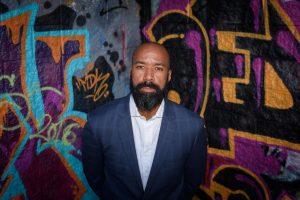
“I hardly know any African Americans under 50 years old who didn’t grow up listening to hip-hop,” says Jeffrey O.G. Ogbar, UConn history professor and founding director of the Center for the Study of Popular Music. “I know folks who are 50 and older who grew up listening to hip-hop and then drifted away from it, but it’s rare to find anyone under my age who’s African American and who did not at some point consider hip-hop their major form of music.”
Ogbar, who’s written and spoken extensively about hip-hop, says he never connected it and Juneteenth, but can see why event organizers would join the two since songs from hip-hop’s early days generally center on messages meant to affirm the human spirit, spread love, and create community.
“I would argue that Kendrick Lamar, in many ways, is a fantastic example of pushing us to imagine a world where there’s the possibility of freedom,” he says. “He does a very good job and he’s one of the most commercially successful artists of his generation. This is the element of hip-hop that builds on the traditions of freedom, persistence, and an expanded notion of humanity – everything Juneteenth stands for.”
Of course, he acknowledges, there are some commercial artists today whose music carries messages of hate, racism, and misogyny, all in opposition to Black expressive culture and likely the product of someone in pursuit of an audience.
“If you look at all of African American music from the late 19th century with ragtime to jazz, blues, R&B, soul, disco, funk, and rock, if you look at everything Black people have created in music, the themes have largely been about love, relationships, and celebrating life,” he says. “If you think about Earth, Wind, and Fire’s ‘Dancing in September’ or any of Prince’s songs, they are about love more than anything else.”
When hip-hop was created 50 years ago, artists were clear about who their audience was, Ogbar says: the communities from where they came. They weren’t beholden to music labels or radio stations and openly challenged them, even protesting the Grammys in 1989 when they weren’t included in the televised portion of the show.
“That was a particular beauty of hip-hop. That was a style of hip-hop that was very irreverent. Run DMC was defiant to the musical establishment and said, ‘We go where we want to go on our own terms. We dress how we dress. We say what we say.’”
Over the last two decades, Ogbar suggests, hip-hop artists have been focused on “satisfying market demands and not on creating art for art’s sake. In that way, I think hip-hop has opened itself up to be ideologically discordant from the community that gave rise to it, because they’re catering to a non-African American community.”
Regardless of the change in message and motive, Ogbar says that drawing a connecting line to Juneteenth might just be an innovative way to acknowledge both events happening this summer.
“The people who are holding these Juneteenth events want an event that appeals to young people and think, ‘We should have some rappers up there. We should have some hip-hop folks.’ I think it’s a good way to bring in young people, bridge the generational divide, and inform young people about the importance of Juneteenth,” Ogbar says.
Enforcement Took Time
Growing up in Los Angeles, where a significant number of African Americans there have ancestors who generations ago moved from Texas, Ogbar says he always celebrated Juneteenth and always was irked by the story that June 19, 1865, was the day that enslaved people in Texas learned the Emancipation Proclamation had been passed on Jan. 1, 1863 – more than two years later.
That’s a fallacy, he says.
While news wasn’t as instantaneous as it is today, Texans would not have had to wait two years to learn the Civil War had ended. News of a major historical event like that would have been widely disseminated.
Ogbar says that enslaved people in Texas, while most knew about the Emancipation Proclamation, wouldn’t have been able to be free, because Texas belonged to the Confederacy, had its own president, and didn’t recognize President Abraham Lincoln’s authority, including the proclamation.
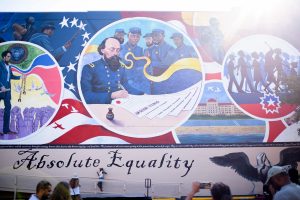
Small battles continued in the West and pockets of the South weeks after Robert E. Lee’s April 9, 1865, surrender, until the Union was able to create order across the defeated Confederacy. Ogbar says that not all Confederate generals immediately capitulated to federal authority, and not all state governments were eager to go along with edicts coming from Washington, D.C.
Union Army Maj. Gen. Gordon Granger’s arrival in Galveston, Texas, on June 19, 1865, to enforce federal law – not just to bring news of emancipation, as urban legend contends – is the true story of Juneteenth.
“That’s the less sexy narrative, and even after Granger’s enforcement of federal law, from Texas to Florida and South Carolina, there were pockets of people who continued to experience slavery,” Ogbar says. “It just took time for enforcement. It wasn’t that people didn’t know, it was about the willingness of the state to impose and enforce a law.”
Besides, the Civil War wasn’t intended to end slavery; it was a battle between the states over secession and the Southern systems built on slavery, Ogbar notes. Only the 13th Amendment to the U.S. Constitution that was passed in December 1865 made slavery illegal.
“Even when the war was over, slavery was legal in Kentucky and Delaware,” he says. “Freedom didn’t come easily. This was a protracted war and the abolitionist opposition worked hard. Hopefully as Juneteenth celebrations mature and we dispel urban legends, there’s more celebration of the tenacity of the people who believe in freedom, who believe in the possibilities that many thought to be impossible.”
Resilience of Americans, Elasticity of Democracy
For Ogbar, Juneteenth is a day that’s as patriotic as apple pie – or cherry, depending on the family picnic.
“If you look at the United States, one could argue there’s a certain elasticity to how we define democracy and freedom. At the inception of the country, the founding fathers did not conceive of a democracy as capacious as we have right now,” Ogbar says. “They didn’t think their wives should vote, they didn’t think their daughters should vote, let alone the people they enslaved or the people whose land they took.”
But because democracy has stretched and expanded to encapsulate these groups and others, it no longer is exclusive to people like Thomas Jefferson or Benjamin Franklin, he says: “Juneteenth is a testimony to the elasticity of democracy in the United States. It’s the ability to expand and include more people, and this is something all people should be proud of. I think all people should be proud of America’s capacity to demand and realize democracy, freedom, and civil rights.”
While he stops short of arguing that Juneteenth should be labeled as more patriotic than other American holidays, Ogbar says it undeniably should be among those at the top of the list.
“Juneteenth is a consequence of the resilience of Americans to survive the threat of treason from the Confederacy. The Confederacy literally sought to destroy the United States of America, and in the process over 700,000 Americans were killed,” he says. “If the United States was destroyed, we wouldn’t have Juneteenth. It’s a day to remember the sacrifice of the people who fought, died, strategized, and protested for the sake of the country. I’m not sure there’s another patriotic freedom of expression as powerful as Juneteenth.”
